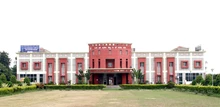
AutoGrow leverages the power of Internet of Things (IoT) technology and incorporates Artificial Intelligence/Machine Learning (AI/ML) techniques to introduce self-regulation and enhance agricultural precision. By utilizing a data-sensing system, the project seeks to optimize crop yield and resource usage based on real-time information.
Ramesh Kestur, the Project Principal Investigator (PI) at IIITB, explained that they had observed two extremes when it comes to automated greenhouses. According to him, Western countries have fully automated systems that control temperature, humidity, and other environmental conditions, while India primarily relies on traditional open farming methods. He further stated that their aim was to combine the best aspects of both approaches and develop a hybrid system tailored specifically for India.
It was mentioned that the IoT sensors embedded in the soil would detect the crops' water and nutrient requirements. Following that, the AI/ML models would regulate the delivery of water and nutrients. Additionally, sensors would also be placed within tanks or containers to ensure optimal conditions.
Dr. Kestur emphasized the ultimate objective, stating that their final goal was to deploy the sensor system and an AI/ML model in open farms. He explained that this system would control water flow, add minerals, and record essential data such as temperature, humidity, and water flow. According to him, this approach would effectively eliminate any wastage of water or nutrients.
In addition to the AI/ML model's self-regulatory water flow, the project incorporates the innovative Wick Irrigation System, which can save up to 60% more water compared to traditional drip irrigation systems. Aswath C.R, Principal Scientist at IIHR, highlighted the system's versatility, stating that it can also be adapted for terrace farming, optimizing space, and improving crop yield.
The collaboration between IIHR and IIITB extends beyond technological advancements. IIHR provides biological support and actively explores methods to enhance the system's practicality for farmers. Furthermore, the AutoGrow system ensures continuous care for crops, even when farmers are unavailable for extended periods. Sensors and the AI/ML model work in tandem to meet the watering needs of crops, reducing labor requirements and empowering women farmers.
The AutoGrow system comprises three configurations: hydroponics, open-grow farming, and vertical setup. Currently in the experimental stage, the system involves a small hardware component. Dr. Kestur expects the system to be cost-effective, with an estimated price range of Rs 15,000-20,000. As a government-funded project, efforts are underway to include it under one of the subsidy schemes to assist farmers.
The IIITB–IIHR team has already established a greenhouse in a laboratory at IIITB, and the initial results have been promising. The final product is anticipated to be completed within the next six months, marking a significant milestone in the advancement of precision agriculture in India.











